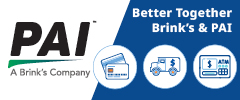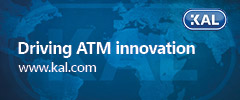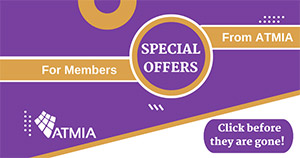
How ATMs Offer New Frontier to Formalise Kadogo Economy
Friday, November 16, 2018
View ShowroomSagana might not be a well-known town except for rice, tomatoes and the Sagana River. It is on the border between Murang’a and Kirinyaga counties. It also boasts a coffee mill and once hosted a railway station.
The Karatina-Nairobi highway cuts through the town, with roads branching to Kutus to the east and west to Murang’a town after closing Sagana River. A new supermarket is the most recent addition to the town, which must be quite old. It is not clear why the town is called Sagana and yet Kikuyus never use ‘s’ in their lexicon. The original name might have been Thagana. One elderly lady, Hellen Magiri now aged 94 told me of spending a night at Sagana town in the early 1930s as she walked from Murang’a to Embu. She recently returned to Murang’a after 80 years.
The age of the town is muted by an interesting innovation; a cooking oil ATM in one of its supermarkets - Magunas. The automatic cooking oil dispenser follows hot on the heels of the now popular milk ATM.
But the acronym ATM seems to refer to any machine that dispenses something through the use of coins or notes. The idea of ATM seems to be getting new uses every day. One wonders which will be the next use of the ATM. Why the popularity of ATMs? One is that technology is more available and advanced. The fusion of mechanical and electrical, or is it electronics engineering, has given ATMs a big impetus. You may never appreciate the importance of an ATM until you talk to the older generation. How did they operate without ATMs and M-Pesa? Ever thought of their disbelief when ATMs started dispensing money?
There are economic reasons behind ATMs. They are automating the kadogo economy. Firms have been packaging their products in smaller quantities to make them more affordable to the vast majority.
Using milk and cooking oil makes removes the packaging element but also gives the consumers more freedom on the quantities they can buy, depending on their income. The litres and half-litres become irrelevant. It gets sweeter, you can become more efficient by removing the human element in the provision of services; compare getting money from an ATM and from the counter. And you need fewer employees. That is why banks charge you more in getting services over the counter than through an ATM. Intelligent ATMs are making life better for customers. You can now deposit money or cheques through ATMs.
Supply chain
That is why milk from ATMs is cheaper than the packaged one.
You reduce the supply chain by going from the cow to the consumer without packaging. The ordinary consumer wants milk, period. Other players can add value and get ghee, yoghurt and butter. The savings by shortening the supply chain is eventually passed on to the consumer. One water firm, Water Forever (Maji Milele) is introducing water ATMs, sorry, automated water dispenser where you bring your own container and buy water in whatever quantity you want depending on your income. Economists love efficiency, but others could moan over the jobs killed by automation. Luckily, new and better jobs will be created. Who is supplying ATMs? Who repairs them? Who will design better ones? The proliferation of ATMs is a clear indicator that we are injecting efficiency into the economic system through the use of technology.
Robert Solow, a Nobel laureate long ago noted that such technology is necessary for economic growth. Kenyans are using more technology at home, workplace and even in churches where powerpoint presentations are now the norm. The 4th industrial revolution based on the fusion of biological and physical systems will make it harder to escape from the grips of technology. Maybe Sagana town will soon have rice ATMs and stop selling fake pishori by the roadside. There seems to be no limit on what can be sold through an ATM. Just as the ATM has made the financial system more efficient, it will make other sectors more efficient. One wonders why we have no petrol ATMs (automated petrol dispenser).
Interestingly, ATMs are getting into other sectors as their days in the financial sector are coming to a close. Do we really need ATMs with all the M-Pesa and mobile banking?
Physical product
Luckily for products like milk or cooking oil, there is no online equivalence; you must get the physical product. What else shall we get through ATMs? Mobile banking and M-Pesa will mean water, cooking oil, milk and other ATMs will not need coins or notes to operate. The age of automation seems to be arriving prematurely. Let us embrace it with joy and thanksgiving.
After all, technology dealt a deathblow to slavery and emancipated us from drudgery. But paradoxically, we never got more leisure time.
Read the full story from Standard Digital here.
Additional Resources from ATM Industry Association
- 4/23/2024 - ATMIA Unveils Strategic Collaboration with Reconnaissance International to Elevate Intelligence & Networking Services to the ATM & Currency Industries
- 4/21/2024 - Fight Against Cashless Economy:
- 4/18/2024 - 3 myths about accepting cash at self service
- 4/18/2024 - Upcoming ATMIA/ASA Committee Meetings: April and May 2024
- 4/18/2024 - ATMIA Joins Atlanta Fed Meeting on Best Practices for ATM Cash Replenishment
- Show All ATM Industry Association Press Releases / Blog Posts



























